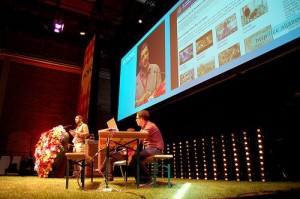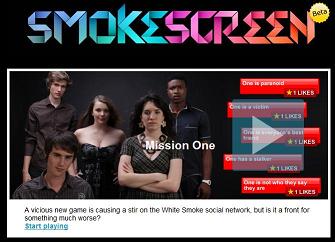 It’s time for day two of PICNIC, and a new day means a new theme: Exploding Media. The theme brought with it an exciting schedule, filled with more on social media, but this time focusing on trying to find parallels between social media and brands and marketing strategies, as well as on games and interactivity.
It’s time for day two of PICNIC, and a new day means a new theme: Exploding Media. The theme brought with it an exciting schedule, filled with more on social media, but this time focusing on trying to find parallels between social media and brands and marketing strategies, as well as on games and interactivity.
The first speaker was movie director Chris Burke, who is also the creator of This Spartan Life, the world’s first and only “talkshow in game spaceâ€. I hadn’t previously heard of This Spartan Life and thus wasn’t familiar with the show’s format, where a host (Burke) interviews a guest (in this case, Gerri Sinclair, CEO of the Center for Digital Media), while playing Halo.
Apparently, This Spartan Life has been a big  hit since 2004 and has gathered quite a bit of praise for its innovative presentation. I can see how the concept might work well with smoothly edited episodes showing Halo game play supplemented by added voiceovers. However, as a live concept, I thought it came off as a forced way of trying something new. The Halo backdrop compounded by the clumsiness of Sinclair trying to master the controls of the game were so distracting that I hardly followed the actual interview.
Sinclair, hailed by Burke as a “gaming professor who actually knows what she’s talking about†has a great track record when it comes digital media and narrative . Most of the times when the interview took an interesting turn, though, the conversation got interrupted by shrieks of “Oh no! I fell of a ledge!†and “someone is shooting at me!†or with Burke trying to keep track of where his interviewee went in the Halo level. It’s a shame, because I would have loved to hear more of what Sinclair had to say on gaming and the changing ways of delivering narratives.


 Mind Candy may have pulled the plug on
Mind Candy may have pulled the plug on